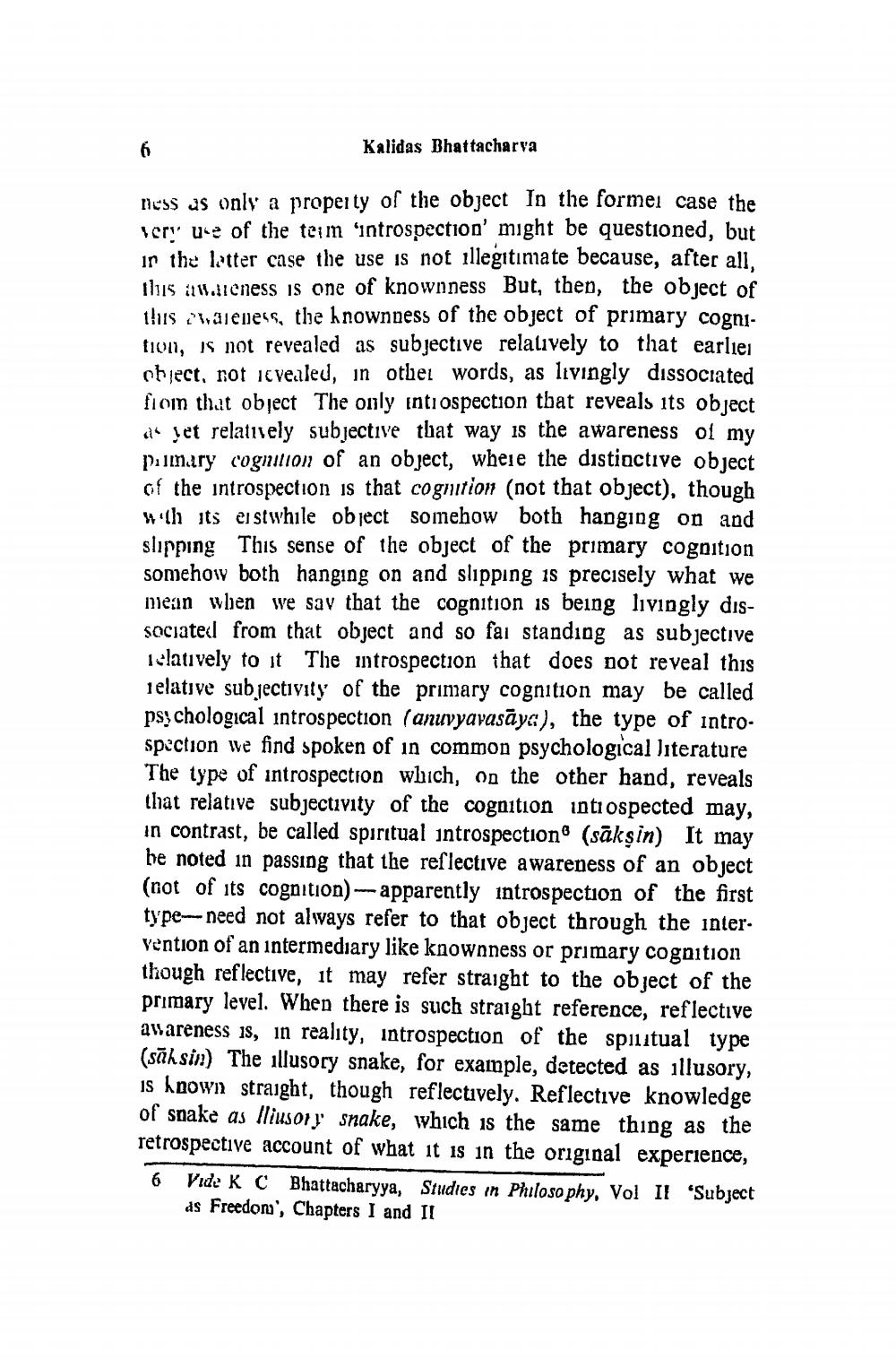________________
Kalidas Bhattacharya
ness us only a property of the object in the formei case the very ue of the term 'introspection' might be questioned, but ir the letter case the use is not illegitimate because, after all. This itWareness is one of knownness But, then, the object of thus 'waleness, the knownness of the object of primary cognition, is not revealed as subjective relatively to that earlier chiect, not icvealed, in other words, as livingly dissociated from that object The only introspection that reveals its object
Jet relatively subjective that way is the awareness of my primary cognition of an object, where the distinctive object of the introspection is that cognition (not that object), though with its ei stwhile object somehow both hanging on and slipping This sense of the object of the primary cognition somehowy both hanging on and slipping is precisely what we mean when we say that the cognition is being livingly dissociated from that object and so fai standing as subjective relatively to it Themtrospection that does not reveal this 1elative subjectivity of the primary cognition may be called psychological introspection (anuvyavasāya), the type of introspection we find spoken of in common psychological literature The type of introspection which, on the other hand, reveals that relative subjectivity of the cognition inti ospected may, in contrast, be called spiritual introspection (sākşin) It may be noted in passing that the reflective awareness of an object (not of its cognition) ---apparently introspection of the first type-need not always refer to that object through the intervention of an intermediary like knownness or primary cognition though reflective, it may refer straight to the object of the primary level. When there is such straight reference, reflective awareness is, in reality, introspection of the spinitual type (sāksin) The illusory snake, for example, detected as illusory, is known straight, though reflectively. Reflective knowledge of snake as lliusory snake, which is the same thing as the retrospective account of what it is in the original experience, 6 Vide KC Bhattacharyya, Studies in Philosophy, Vol II 'Subject
ds Freedom', Chapters I and II




